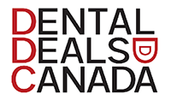Navigating Dental Insurance and Healthcare in Canada
As we continue our exploration of oral health in Canada, let's dive into the intricate world of dental insurance and healthcare systems. While Canada boasts a robust healthcare system, dental care occupies a unique space, influenced by both public and private dynamics. In this blog post, we'll unravel how dental insurance impacts oral healthcare services in Canada, drawing comparisons with other countries like Australia, France, and the UK.
Private Dental Insurance in Canada and Beyond: In Canada, as well as in Australia and the USA, private dental insurance plays a pivotal role in shaping oral healthcare services. These countries share similarities in their reliance on private insurance to complement their healthcare systems. In Australia, individuals can opt for private insurance coverage to access private hospitals while retaining public hospital access. Similarly, in Canada, private dental services can be accessed through insurance plans or out-of-pocket expenses. Public dental care, on the other hand, often has strict eligibility criteria.
Unique Incentives in Australia: Australia introduces a unique twist with government incentives to encourage the purchase of private insurance. Individuals or families who don't opt for private insurance must pay a mandatory levy, creating a financial nudge towards private coverage. This approach aligns with Australia's hybrid healthcare system, offering both private and public options.
Universal Coverage in France and the UK: In contrast, France and the UK offer universal oral health coverage for their residents. France, for instance, reimburses 70% of the fixed fee for regulated dental treatment items, with increased coverage for specific groups like children, patients with chronic conditions, and pregnant women. The UK provides universal oral health coverage for children and adolescents, aligning with Germany and Sweden in ensuring comprehensive care.
Canada's Unique Scenario: Despite having the highest proportion of individuals visiting dentists within the previous 12 months, Canada maintains the highest proportion of individuals with unmet oral healthcare needs. This paradox can be attributed to disparities between those with private dental insurance or high incomes and those who struggle to afford routine dental visits.
Empowering Patients for Better Oral Health: In addressing oral health equity, we as dental professionals have a crucial role to play. We must empower patients to take charge of their dental care and overall health. A patient-centered approach, focusing on individual preferences, needs, and values, can make a significant difference. Additionally, considering patients' living environments and self-management capacity can further enhance the effectiveness of dental care beyond a disease-oriented model.
Advocating for Medicare Coverage: One essential step toward achieving oral health equity is advocating for Medicare coverage of dental services post-physician referral. This approach aligns with the primary objective of the Canada Health Act. By expanding coverage to include common conditions like abscesses, toothaches, and pre-malignant oral lesions, we can reduce oral health inequities and improve overall healthcare outcomes.
Challenges and Solutions: However, challenges persist. Physicians may lack the experience or resources to assess oral health issues comprehensively. Patients might not recognize the oral origin of their medical complaints, further complicating diagnosis. Moreover, advocating for Medicare coverage for dental services involves complex legislative and funding processes.
The Need for Comprehensive Data: To address these issues effectively, we must collect comprehensive oral health data on the Canadian population. Access to up-to-date information is crucial for policymakers to develop a national oral healthcare strategy. Unfortunately, data collection has been sporadic, with significant gaps in our understanding of oral health in Canada.
In our journey toward achieving oral health equity for all Canadians, physician advocacy for Medicare-eligible dental referrals represents a significant step forward. While challenges persist, the recent announcement of a new dental care program for low-income Canadians by the federal government offers hope for progress. As dental and medical professionals, together with our respective associations, we can influence health policy changes that prioritize Canadians' oral health. Let's continue to work collaboratively to ensure that oral health remains an essential component of holistic healthcare in our great nation.
“For me, an area of moral clarity is: you’re in front of someone who’s suffering and you have the tools at your disposal to alleviate that suffering or even eradicate it, and you act” — Paul Farmer

